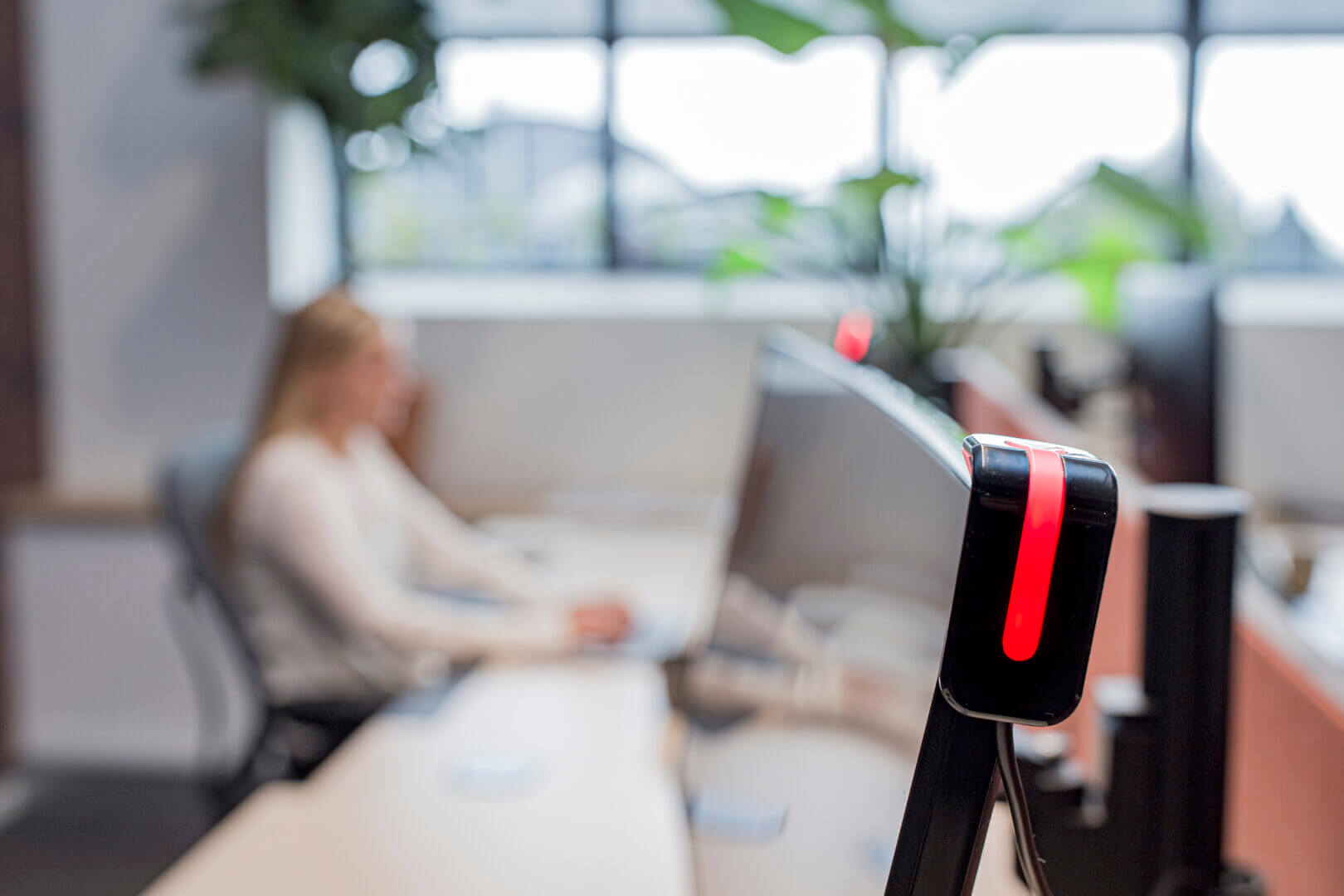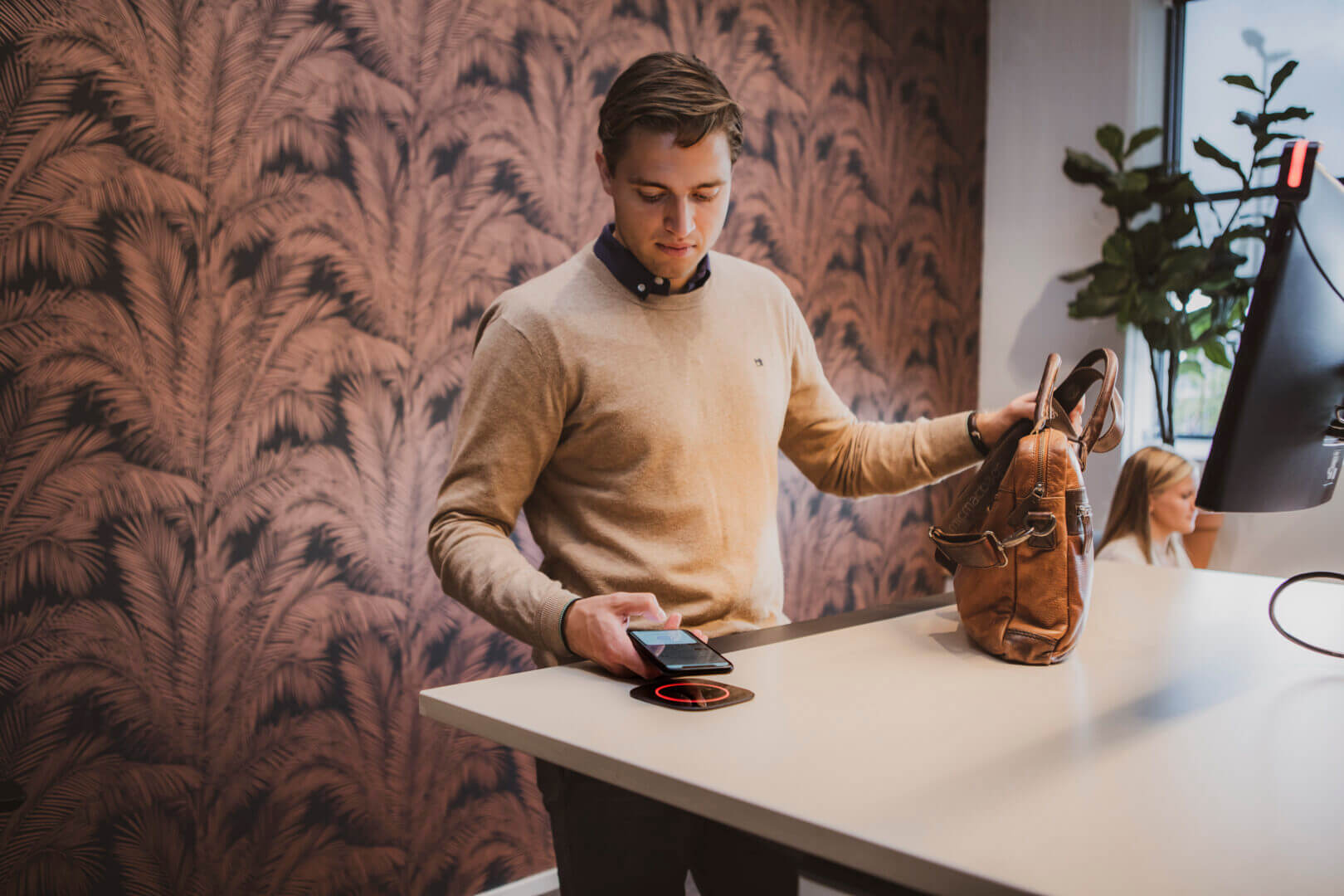
What Makes a Smart Workplace in the Flexible Working and Hybrid Working World?
Workplaces are becoming smarter because they have to – to adapt to flexible and hybrid working being the norm.
Here are the key factors to consider in creating a smart workplace for employees and visitors.
Why Do Organisations Need a Smart Workplace?
Organisations understand that employees – who have largely enjoyed the work-from-home experience – have higher expectations of what their office should offer. The smart workplace is seen as dynamic, diverse, adaptable, agile, collaborative and supportive.
Leaders also want the smart workplace to enable good communications, productivity and efficiency. And having quality data will help to shape the future of work with good decision-making.
What is a Smart Workplace?
A smart workplace uses technology to improve the office experience and hybrid working experience for employees, visitors and remote workers.
The smart workplace brings together the physical work environment, organisational culture and digital workspace to create a more positive, connected and productive experience.
The smart workplace gathers real-time data on how people are interacting and using the space – to improve strategic workplace management, facilities planning and budget efficiency.
How does the Smart Workplace Promote Positive Health and Wellbeing?
A smart workplace offers a positive environment in which to work. It creates a safe and comfortable space for everyone, and provides equipment and technology to allow people to feel motivated, supported and happy in doing their best work.
GoBright desk booking and room booking allows employees to plan their workdays ahead and feel more relaxed because the space they need is guaranteed in advance. Adjustable desks give the user the opportunity to design their own workstation, including automatic switching to personalised height settings on arrival.
Visits to the office are made less stressful with online registration via any device, digital signage and digital wayfinding. And on the hygiene front, the GoBright Connect system tells cleaners what desks require cleaning.

How Does a Smart Workplace Support Flexible Working Arrangements for an Efficient Hybrid Working Environment?
Flexibility is the key to hybrid working.
Some employees like to work at the office every day, some a few days a week. Others prefer fully remote – or spend much of their time on the road, meeting customers.
Having a range of different and adaptable spaces in the office gives employees what they need to work at their best. Think modular furniture, room dividers, mobile desks, smart lockers, soundproof work pods, video conferencing tools and wireless presenting solutions.
Desk booking systems by GoBright allow employees to book the space they need – close to colleagues they want to work with, if preferred. GoBright room booking helps users reserve the right space for meetings, from project team conferencing to creative brainstorming huddles.
In What Ways Does a Smart Workplace Deliver Efficient Communication Systems for Employees and Visitors?
The smart workplace uses digital signage to improve internal communications and help employees feel more involved and informed.
GoBright digital signage can show company news, dashboards, sales successes, industry trends, product or service videos, and other marketing content – in one office or across multiple offices.
Digital signage from GoBright can also help make visitors feel welcome and guide guests to find their way more easily. Wayfinding provides simple paths to every meeting room in the building.
Employees and facilities managers can book, check and monitor the accurate status of any space direct from their preferred device.
How Does a Smart Workplace Use Data Analytics to Shape the Future of Work?
A smart workplace collects and analyses data to deliver insights for organisations around performance, occupancy rates and use of workspace.
The technology provides live and long-term historical data to help predict optimal use of the future office. Workplaces can be designed and redesigned efficiently for employees and visitors.
GoBright’s desk booking and room booking software gathers data on bookings, check-ins, no-shows and ad hoc occupancy. Which days or times of day are the busiest? What types of desk or room are favoured? What’s the story behind the no-shows?
Having real-time and accurate data, allows an organisation to make the right choices around office design and functionality. Data helps to drive strategic decisions, make more efficient use of space and improve budget performance.
A Smart Workplace is the Smart Way to Go for Hybrid Working
A smart workplace is the modern workplace and the future of work.
Leaders who embrace hybrid working can more easily deliver the best for employees, visitors, clients, customers and organisational performance.
With employee expectations of the office higher than ever, having the right space and technology in place also plays a part in talent recruitment and retention strategy.
Smart desk booking, room booking and digital signage technology from the likes of GoBright help to deliver benefits in health and wellbeing, productivity, communications, collaboration and strategic data-driven decision-making.
The smart workplace is the way to a future-proof and highly effective workplace.